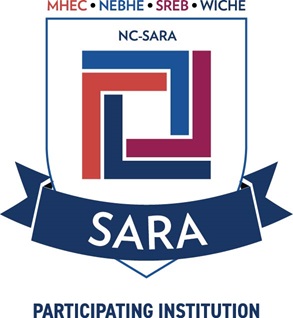Introduction
JMU has been approved to participate in the National Council for State Authorization Reciprocity Agreements. This is an overview of how the function of state authorization impacts JMU's management of various educational activities that occur in a state or territory outside of Virginia. The State Authorization Reciprocity Agreements, commonly known as SARA enable an efficient and effective process for states and institutions to meet most of the associated obligations. The information below defines state authorization
and explains the purpose of SARA.
State Authorization Reciprocity Agreements (SARA)
What is State Authorization?
State authorization is a longstanding requirement in the 1965 Higher Education Act, which with many modifications, is still in effect. The legislation requires that in order to receive Title IV Federal student aid, institutions must be authorized to operate in the state* in which they are located. Thus, while federal regulations+ and regional accrediting organizations drive many educational activities and policies within an institution, the states -- not the federal government or accrediting organizations -- typically oversee educational activities and authorize institutions to operate within their borders.
A state authorizes institutions that are located within its borders, and institutions that are located elsewhere but offer educational activities within its borders. Necessarily, institutions that want to offer educational activities in a state other than its own must seek approval from the other state. While these activities include distance learning, the regulation actually applies to any type of educational activity initiated by an institution within a state. In addition to distance education, educational activities such as student practica, student recruitment, and institutional employment can all trigger the need for an institution to seek state approval.
In most cases at JMU, the location of the student determines the state in which an educational activity is taking place. While most JMU students are located in Virginia when engaged in educational activities, some are located outside of Virginia during some or all of their academic career at JMU. For example, many students engage in some type of semester-long field experience, which might be located outside of Virginia. Some students are "fully distant" students who complete all of their coursework online and might never come to campus. Where a student is located and what type of activity they are involved in determines what if any action JMU must take to obtain permission from a state to offer the activity.
It is important to note that "physical location" is not necessarily the same as "residence;" the need for approval is based on where a student is actually located while participating in a practicum, taking an online course, or completing a multi-week seminar. For example, a student's residence could be New Jersey but they are physically located in Montana when participating in a supervised field experience during one semester; in this case, JMU must be authorized to offer the field experience for credit in Montana.
State Authorization Reciprocity Agreements (SARA)
The State Authorization Reciprocity Agreements or SARA make it easier for states to authorize institutions and for institutions to obtain approval to offer educational activities in a state other than its own (referred to here as offering "out-of-state learning activities"). SARA centralizes the authorization process for each institution in a single state called the institution’s “home state.” Colleges or universities in a SARA state therefore only need their home state authorization to offer educational activities to students in any other SARA member state, subject to certain limitations.
Under the auspices of the State Council for Higher Education in Virginia (SCHEV), Virginia is a member of SARA and JMU is approved to participate in SARA. This means that JMU can initiate many out-of-state learning activities in other SARA-approved states without seeking approval from those states. For example, students located in other SARA-approved states can participate in JMU online courses and programs and field experiences such as practica, internships, and clinical placements without JMU having to seek authorization from those states. (See the "States" menu on http://nc-sara.org/sara-states-institutions for a complete list of SARA states.)
However, the SARA agreement does not completely eliminate the need for institutions to seek additional authorization from other states or to ensure that specific information is made available to students. For example, institutions must seek authorization from any non-SARA state; certain field placement conditions trigger the need to seek approval; and institutions that offer programs intended to lead to professional licensure must inform students if those programs do or do not meet the relevant state professional licensing boards' requirements.
*U.S. territories also govern educational activities within their borders. For simplicity, we will use "state" to include these territories.
+See Federal Legislation: Title 34 Section 600.2, 600.9, and 668.43.

